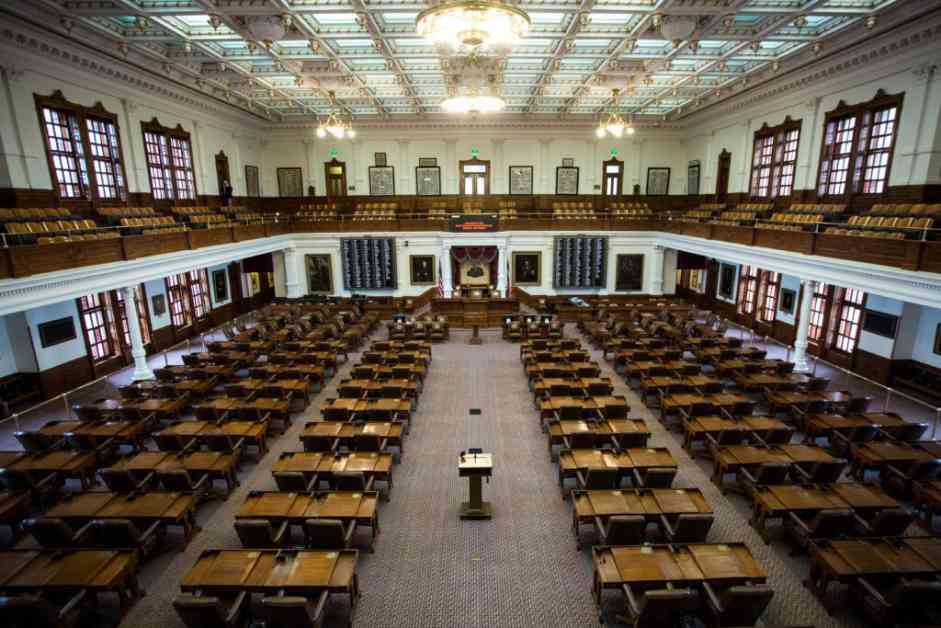After weeks of anticipation and speculation, the Texas House under the leadership of Speaker Dustin Burrows has finally announced the committee assignments. This crucial step paves the way for lawmakers to begin the process of hearing bills and shaping the legislative agenda for the upcoming session.
One of the key aspects of the new House rules that has garnered attention is the stipulation that only Republicans can chair committees, while Democrats are limited to holding vice chair roles. This shift in power dynamics sets the stage for a potentially contentious and partisan legislative session.
Stability and Change in Committee Assignments
Amidst the flurry of committee assignments, all eyes were on the appointment of the Public Education Committee chair, a pivotal position responsible for shepherding Governor Abbott’s school voucher priority through the House. Blaise Gainey, an astute observer of state politics, noted that Rep. Brad Buckley, a Republican from Salado, retained his position as the head of this crucial committee. Gainey remarked on the relative stability in committee leadership, with most chairs remaining the same or experiencing minimal changes.
Gainey highlighted Buckley’s vocal advocacy for school choice during the previous session, citing Governor Abbott’s likely enthusiasm for Buckley’s support of the school voucher bill. With a stronger numerical advantage this time around, Gainey expressed confidence that the bill would gain traction in the House, potentially reshaping the educational landscape in Texas.
While school vouchers are not on the immediate agenda for the week, Gainey pointed out that the House could decide to address this contentious issue in the coming days. Despite the current break for President’s Day, legislative activities are expected to resume soon, with a possibility of the education committee taking up the bill later in the week. The absence of a filed bill does not preclude swift action, as lawmakers retain the flexibility to introduce and deliberate on pertinent legislation.
Focus on Budget Requests and Emergency Items
In addition to the looming debate over school vouchers, the House is gearing up to engage with state agencies regarding budget requests, mirroring the Senate’s earlier deliberations post-committee assignments. Gainey emphasized the significance of this budgetary process, underscoring the essential role of lawmakers in determining the financial allocations for various governmental functions.
As state agencies present their funding needs and priorities to legislators, the intricate dance of budget negotiations unfolds, culminating in the passage of a comprehensive budget that sustains the state’s operations. While the budget may not be the immediate legislative priority, its timely consideration is imperative to ensure the smooth functioning of essential services and programs.
Looking ahead, Gainey anticipated that House lawmakers would soon address Governor Abbott’s emergency items, encompassing school choice, property tax relief, and other critical issues outlined in his state of the state address. While not obligatory for passage, swift action on these emergency items demonstrates lawmakers’ commitment to addressing pressing concerns before the 60-day deadline expires. This strategic maneuver allows for the subsequent consideration of non-emergency bills, broadening the scope of legislative activity during the session.
As the Texas House navigates the intricate terrain of committee assignments, policy debates, and budget deliberations, the pulse of legislative activity quickens, signaling the onset of a dynamic and transformative session. Stay tuned for more updates on the unfolding legislative drama as lawmakers grapple with pressing issues and chart the course for Texas’ future.















